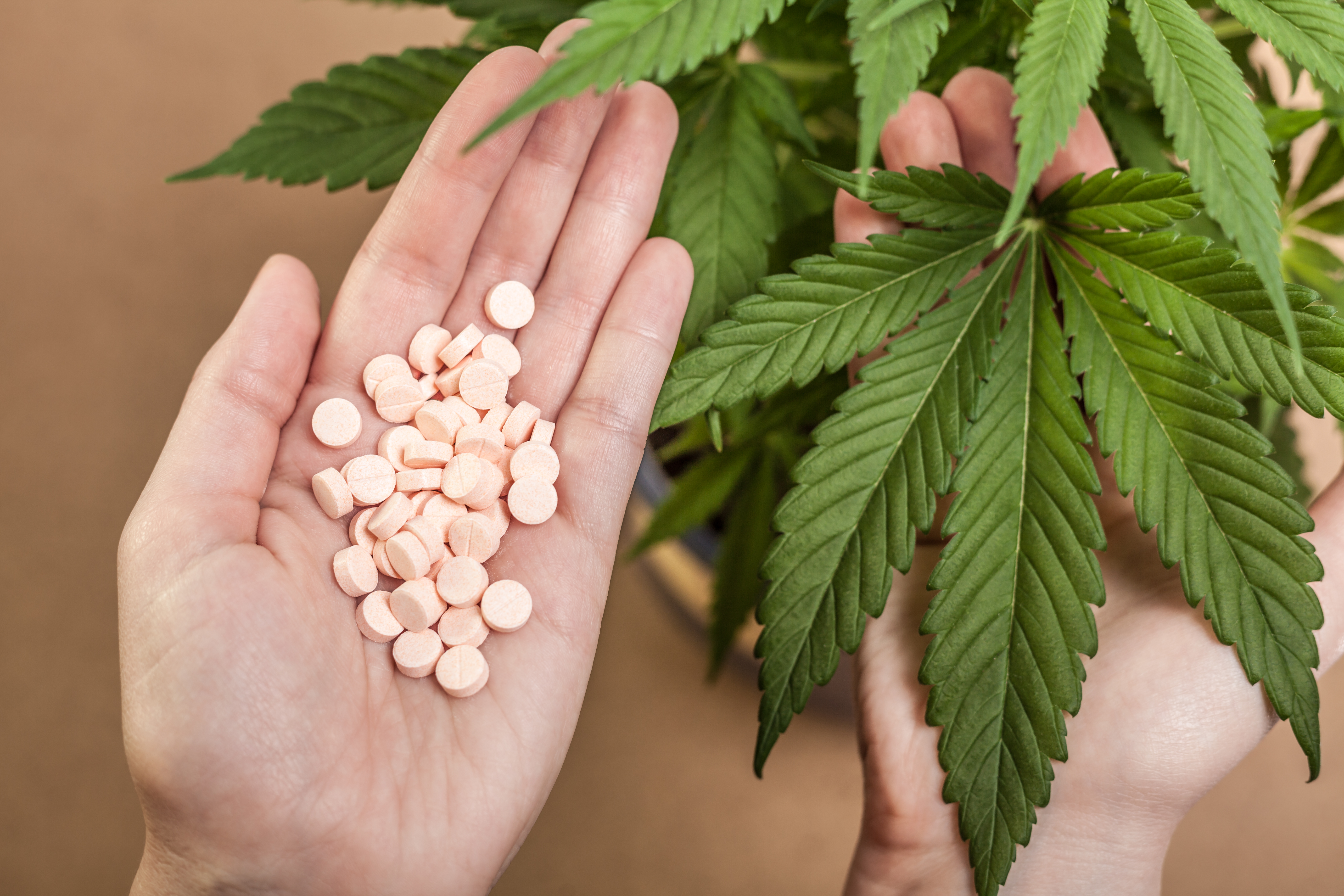A lot of people are taking a serious look at cannabis as a natural source of relief for anxiety, sleep issues, and depression. Some of our readers are already on prescription medications, and it’s critical for you to understand the risks of adding cannabis to what you already take. Because cannabis is still federally criminalized, research is limited, but here’s what we know.
Cannabis and Your Liver
By now, you have probably heard about some of the different components of cannabis. CBD, one of the prominent cannabinoids found in cannabis, is significant in understanding interaction risk. CBD interacts with the enzyme system in your liver, and can potentially prevent or slow medications from accessing this system. The majority of psychotropic medications (like Klonapin, Xanax and Valium) and even things like antihistamines and steroids need liver enzymes to be processed. This means CBD in high doses can prevent your body from absorbing the medication, leaving traces to build up in your bloodstream.
Fortunately, this is more of an issue for heavy users. Some researchers suggest a safe rule of thumb is not taking more than a gram of cannabis a day. Depending on your method of administration and the type of cannabis flower, a gram of cannabis can have ~250mg-900mg of THC. This is a much significantly higher dose than our recommended dose of 5 mg or less of THC. Still, it is always important to consult a physician before making any changes, and to pay close attention to how your body reacts to any changes.
Types of Antidepressants
There a few primary categories of medications that are prescribed for depression.
Low Risk
Three of the biggest categories of antidepressants consistently show very low risk of negative results when mixed with cannabis:
- SSRIs (Prozac or Zoloft, for example)
- These are the most commonly prescribed medications for depression.
- The exception is for those with manic tendencies. Those taking an SSRI together with cannabis who have manic tendencies can develop hypomania, a mild form of mania that can cause disinhibition, mood elevation and irritability.
- SNRIs (like Cymbalta)
-
- These are a newer class of antidepressants, typically prescribed when SSRIs aren’t working well.
- While newer, SNRIs also show very low risk of interacting negatively with cannabis.
-
- NDRIs (like Wellbutrin)
- This is a class of antidepressants that are notable for not having sexual side effects.
- These can also be prescribed for ADHD.
High Risk
- MAOIs
- These are a class of antidepressant that are rarely prescribed anymore, because of high risks of side effects and dangerous drug interactions.
- Exact interactions with cannabis have not been clinically studied, but as MAOIs don’t mix well with most medications or even many foods, most would advise not trying these together.
- Tricyclic antidepressants (like Tofranil)
- These have slightly lower risks of side effects and interactions than MAOIs, but much more-so than newer antidepressants.
- The few cases linking tricyclic antidepressant use and cannabis use by the same patient report potentially life-threatening results.
- Sedatives (Klonopin, Ambien, Ativan)
- These are not themselves considered antidepressants, but many depression patients are also prescribed sedatives.
- These cause sleepiness and drowsiness, which many strains of cannabis also cause, so combining these can amplify these effects to an extreme level.
Starting Low and Slow
Cannabis can slow down effects and results for medication, so if you are prescribed a new medication, it’s a good idea to avoid cannabis for a while so your body can adjust to the new prescription. This way you can get a sense of exactly how the medication affects you. Then, when you introduce cannabis in addition to your medication (under healthcare guidance) you can pinpoint if there are any adverse effects from combining the two. Most importantly, always consult your healthcare provider – ideally one with experience in cannabis use – before making any changes to your regimen.
This article is intended for educational purposes only and should not be considered medical advice.
Source
https://www.leafly.com/news/health/cannabis-interact-antidepressants
